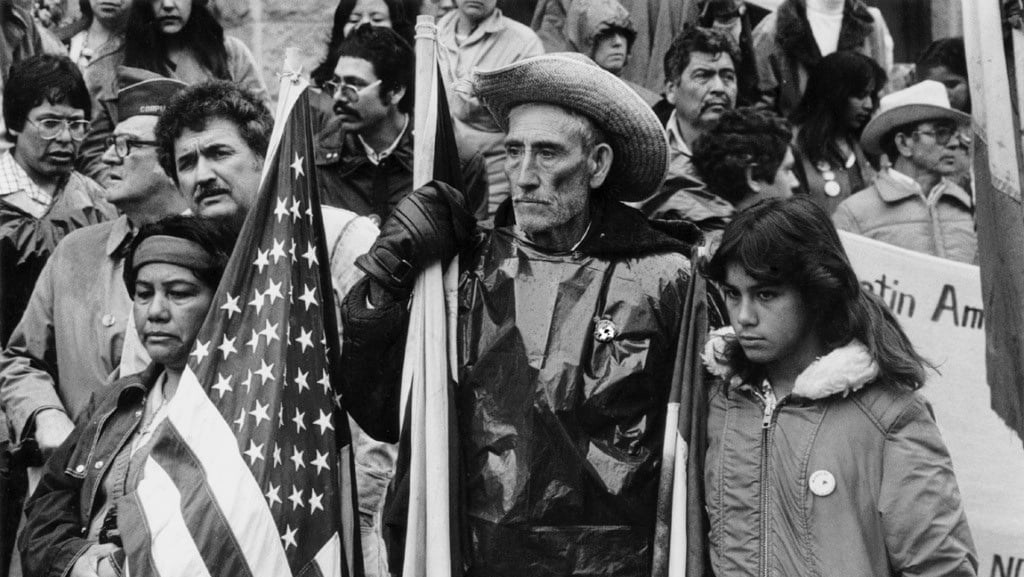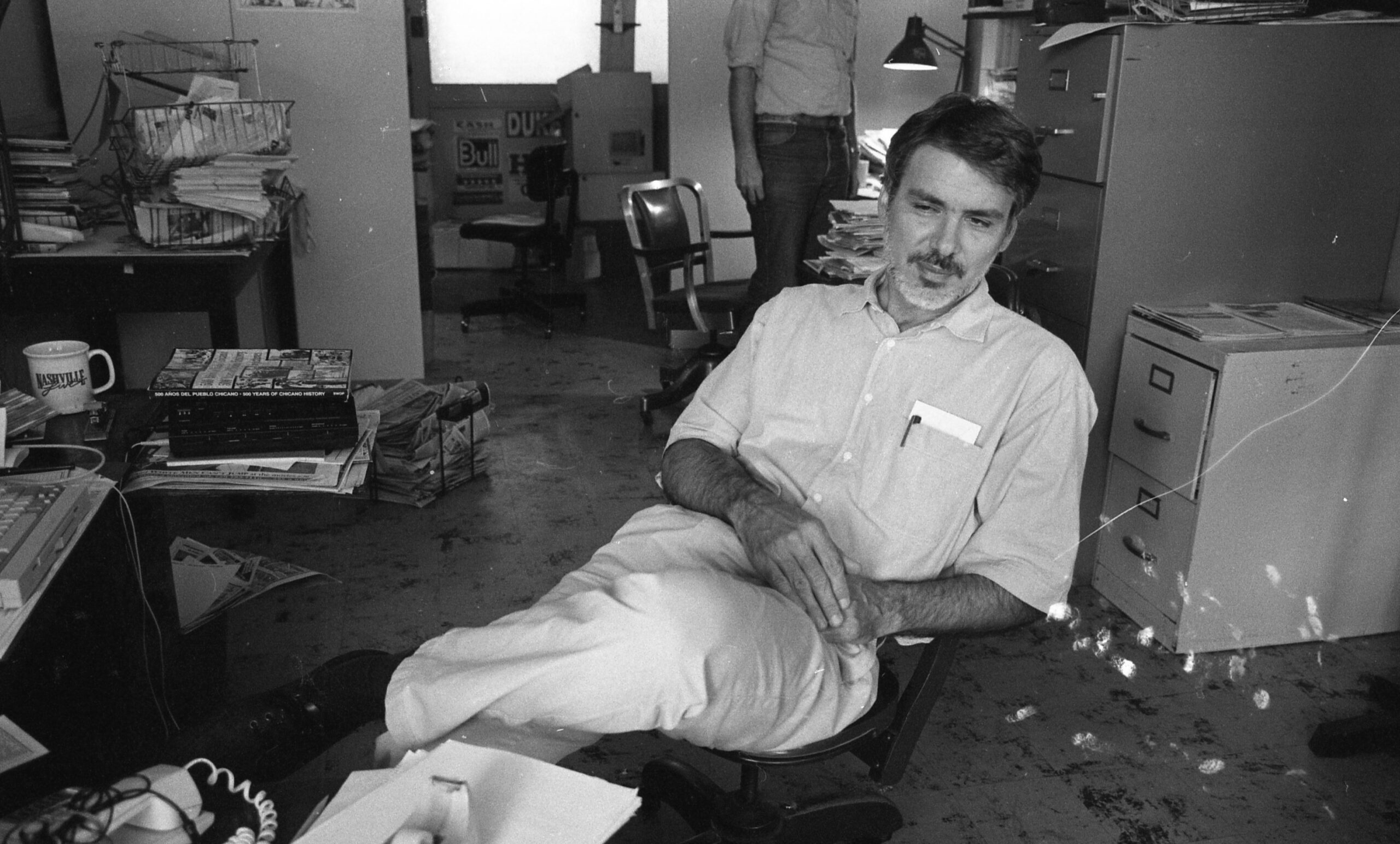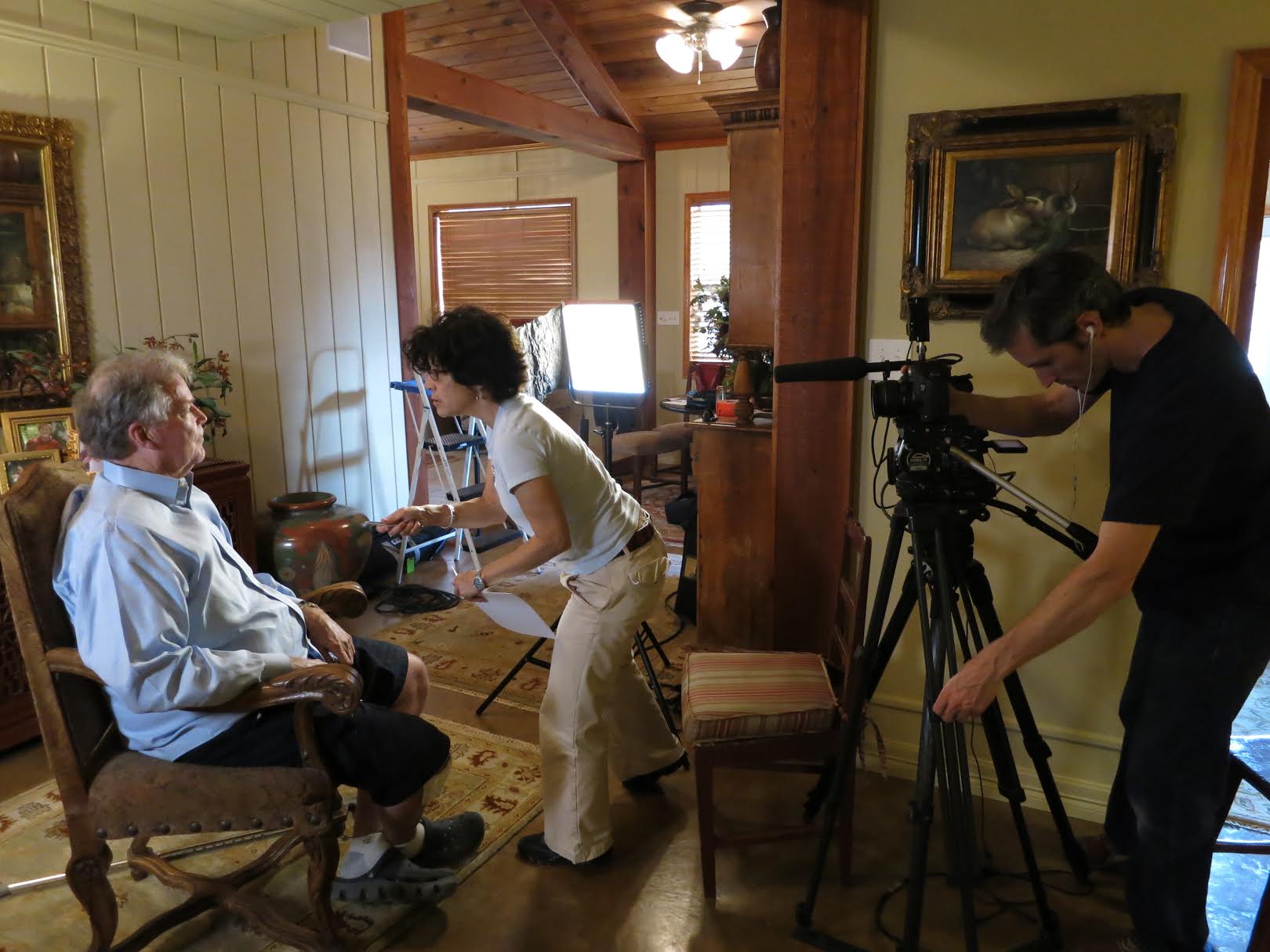
Q&A with Janice Engel, Director of a New Molly Ivins Documentary
Janice Engel, an award-winning producer of documentaries and television series, is directing and producing a documentary about the late Molly Ivins. As long-time readers know, Molly was closely associated with the Observer for decades. In the 1970s, Ivins co-edited the Observer and continued to write for the magazine up until her death. In 2008, the magazine started The MOLLY National Journalism Prize to honor the nationally syndicated columnist, author and journalist who will always be remembered for her wit and fierce determination to fight the powerful in politics on behalf of the powerless.
Engel started researching Ivins and interviewing family members and colleagues three years ago after production partner James Egan told her a film had never been made about the journalist. The team recently launched a Kickstarter campaign to help them finish the documentary. The Observer recently spoke with Engel about her work-in-progress, “Raise Hell: The Life & Times of Molly Ivins:”
Texas Observer: Molly’s heyday was the ‘70s, ‘80s and ‘90s; why is she relevant right now?
Janice Engel: Molly’s relevant right now because things that she wrote and said 10, 15, 20, 25 years ago are happening right now. She said in ‘91, it’s never been a left-to-right issue, it’s always been a top-to-bottom issue, and she’s absolutely correct and she said in 1991 that the richest 1 percent own 40 percent of the wealth and it’s only getting worse.
TO: There have been biographies and a play written about Molly Ivins. She wrote numerous books herself. What will your documentary tell us that hasn’t already been said?
JE: Well, first of all there’s never been a documentary made about Molly Ivins. And the concern is that she will be just forgotten and become a footnote in history. Her voice is so relevant for what’s going on right now. Molly knew that humor was the way to get people to listen, and we don’t have enough of that. Jon Stewart does it, Stephen Colbert does it, John Oliver does it, but they are comedians who use politics as their platform and they have a whole team of writers. Molly was one person on her own doing this three times a week when she became a syndicated columnist and she really laid the groundwork for what they do right now.
TO: Did you uncover something that maybe we haven’t seen anywhere else?
JE: Well, you’ll have to let the documentary do that, I’m not going to reveal that now. A lot of her friends said there was the professional Molly, then there was the public Molly, and the private Molly. But I will tell you she was incredibly beloved and incredibly generous. She promised John Henry Faulk when he died that she would go to ACLU meetings all over the country, and she did and she did it for the last 15 years, even when she had breast cancer. She would go and she would meet in the basement of some library in a little town where she and the other four or five liberals would get together to form an ACLU chapter.”
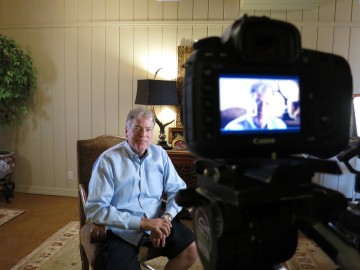
TO: What kind of storytelling elements are you using in the documentary?
JE: I have 20 interviews in the can. We interviewed Andy Ivins, an incredible interview, lots of tears, lots of laughter, he was as funny as she was. And he died three weeks later. So we have the last interview with her brother. And I interviewed her sister Sara, I interviewed all her childhood friends, and her teenage friends, and people who knew her way back when. And now I’m going for politicians, pundits and pontificators on both sides of the coin. I want to go to the people that Molly wrote for and about—her beloveds, her constituents.
TO: Are you going to be showing some of her writings, reading from what she wrote?
JE: Absolutely. I want to basically use her writings as transitions and as graphics in a way that will kind of maybe be a way to use to get me to another part, to get us into another chapter, to maybe spur where we’re gonna go in the documentary. I have lots of audio recordings of her saying what she wrote and then seeing what she wrote and then talking about how she did it.
TO: How did you come up with the name “Raise Hell”?
JE: Molly said, “Get out there in the streets, bang them pots and pans, people, raise hell. We are the deciders, we are the ones who own this country. They’re just the people we’ve hired to drive the bus for a while.” So she used “raise hell” quite a lot.
TO: After people see this documentary, what kind of picture of Ivins do you want them to come away with?
JE: I want Molly to be held up there with Mark Twain, I want people to know who she was, I want little girls to know what’s possible. For Molly, civics is so important, that you know your rights, and that you vote, and people don’t vote. And what we’d like to do from this documentary is to create some sort of an outreach using Molly, using her writings in a way that helps coin “Molly Civics 101,” that makes it fun. And it can be used in school for kids who are going to be graduating soon and have to vote and know how important it is for them to vote as well as immigrants who are going to get their citizenship, rather than the boring stuff that’s shoved down people’s throats. So we want to come up with a way to create some sort of a program that can be used to educate people in the importance of civics and understanding that this is our country—we’re the deciders, it’s up to us.
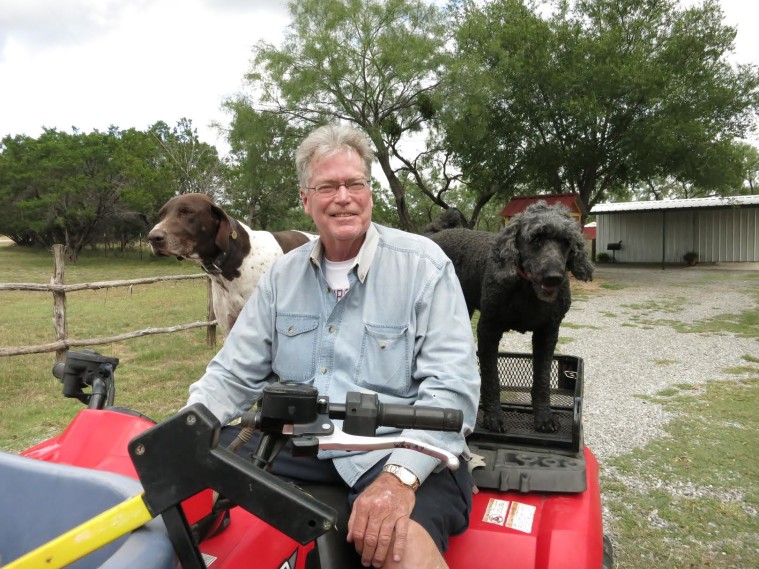
This interview has been edited and condensed.
